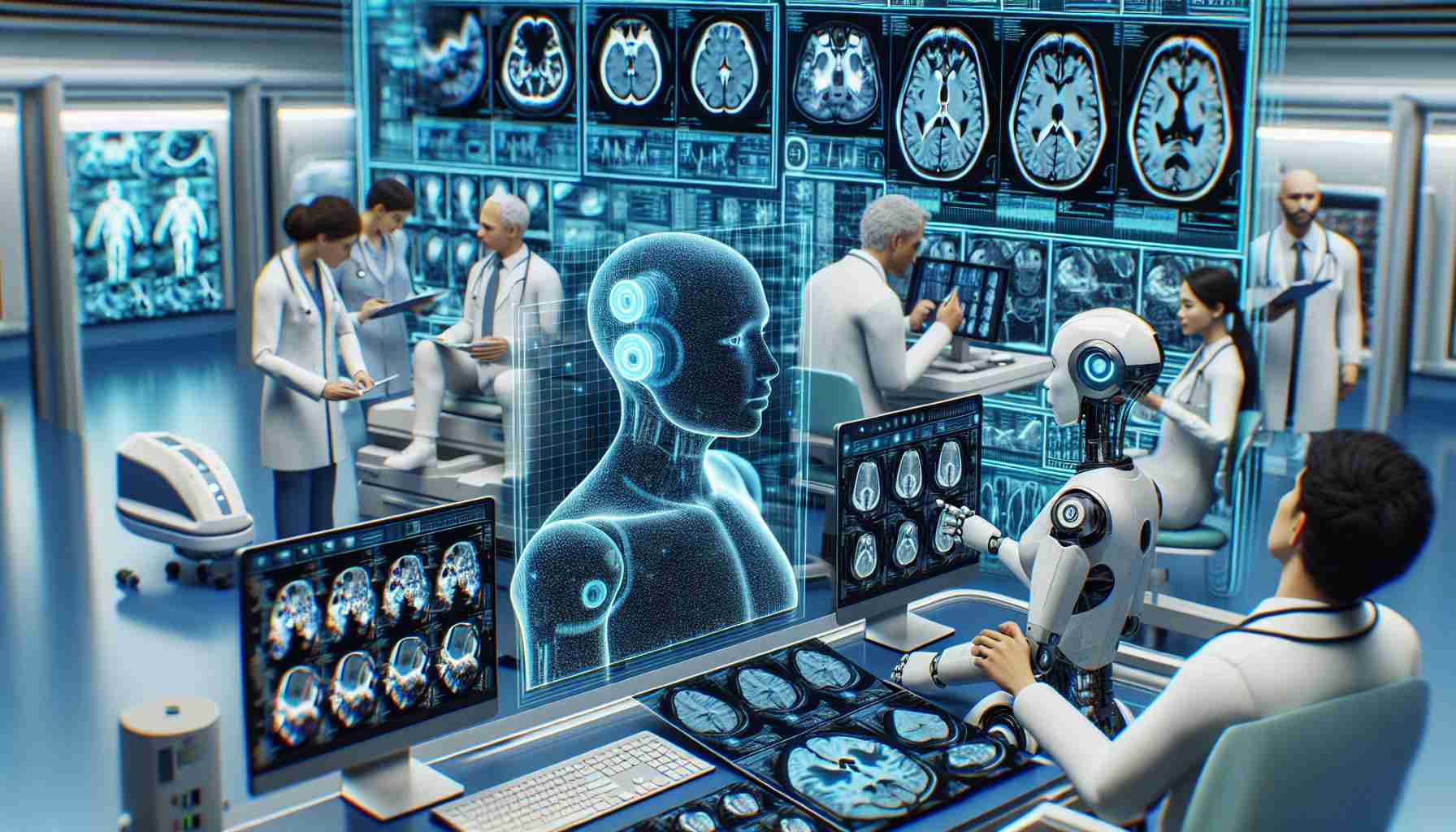Artificial intelligence is revolutionizing the field of medical imaging, offering a multitude of benefits throughout the diagnostic process. Alessandro Leo, a renowned business manager in the industry, emphasized the transformative power of AI in improving image acquisition, processing, and clinical evaluation.
Leading medical technology companies are showcasing cutting-edge AI-powered diagnostic and interventional imaging systems, such as those presented by Philips at the recent SIRM National Congress in Milan. These advanced technologies leverage AI to enhance image quality, streamline diagnosis, and optimize treatment protocols, ultimately leading to more efficient healthcare delivery.
By harnessing the capabilities of artificial intelligence, healthcare providers can expect enhanced accuracy, reduced turnaround times, and improved patient outcomes. The integration of AI into medical imaging practices marks a significant advancement in the field, paving the way for a future where precision medicine and personalized care are the standard of care.
Uncovering Further Insights into the Impact of Artificial Intelligence on Medical Imaging
The intersection of artificial intelligence (AI) and medical imaging continues to evolve rapidly, uncovering new dimensions of efficiency and precision in healthcare. While advancements in AI have already demonstrated significant benefits, there are several key questions that arise when exploring its impact on medical imaging.
What are the potential long-term effects of widespread AI adoption in medical imaging?
As AI becomes more deeply integrated into medical imaging practices, one crucial question is the long-term impact on medical professionals and patient care. While AI can augment diagnostic accuracy and streamline processes, there are concerns about the potential de-skilling of healthcare providers and the need for ongoing education to interpret AI-generated insights effectively.
Are there ethical considerations surrounding the use of AI in medical imaging?
Ethical dilemmas persist in the application of AI in healthcare, particularly in medical imaging where sensitive patient data is involved. Issues such as data privacy, algorithm bias, and the autonomy of healthcare decisions pose significant challenges that require careful consideration and regulation to ensure patient trust and safety.
What are the key challenges in integrating AI into existing medical imaging workflows?
While the promise of AI in medical imaging is vast, there are practical challenges in implementing AI solutions within complex healthcare systems. Issues such as data interoperability, regulatory compliance, and cost barriers present hurdles that healthcare organizations must navigate to fully leverage the benefits of AI technology.
Advantages and Disadvantages of AI in Medical Imaging
The benefits of AI in medical imaging are profound, with improved diagnostic accuracy, enhanced efficiency, and personalized treatment options being among the key advantages. AI can help radiologists prioritize critical cases, reduce interpretation errors, and expedite time-sensitive diagnoses, ultimately improving patient outcomes.
However, there are also disadvantages to consider, such as the potential for over-reliance on AI systems, the risk of algorithmic biases impacting clinical decisions, and the challenges of effectively integrating AI into existing healthcare workflows. Balancing the advantages and disadvantages of AI in medical imaging remains a critical task for healthcare stakeholders seeking to optimize patient care.
For more information on the latest developments at the forefront of AI in medical imaging, visit Siemens Healthineers for insights into cutting-edge imaging solutions that are shaping the future of healthcare.
The source of the article is from the blog mendozaextremo.com.ar

